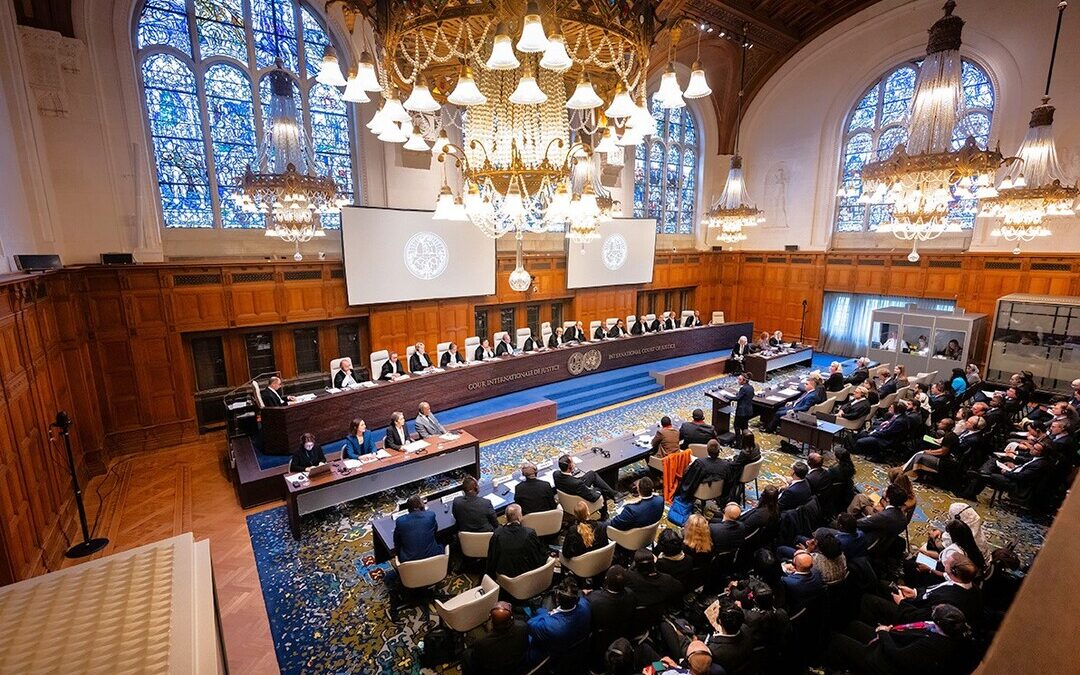ICJ Rules Countries Must Prevent Climate Harm or Face Legal Consequences
UN top court says states must act on climate or face legal consequences under international environmental and human rights law.
The International Court of Justice ruled on Wednesday that countries are legally obligated under international law to combat climate change and may face legal consequences for failing to prevent environmental harm caused by greenhouse gas emissions.
The long-awaited advisory opinion, requested by the United Nations General Assembly in March 2023, marks a landmark in international climate law.
The unanimous opinion outlines binding duties under both international treaties and customary law, clarifying that failure to act could render states liable for damages and reparations.
Broad Obligations for States
The court outlined a sweeping set of responsibilities. These include obligations under treaties such as the UN Framework Convention on Climate Change, the Kyoto Protocol and the Paris Agreement.
“States must act with due diligence to mitigate emissions and adapt to climate change,” the court said, adding that they are required to co-operate and fulfill targets that aim to keep global warming below 1.5 degrees Celsius above pre-industrial levels.
The court also said countries must regulate private actors, such as fossil fuel companies, to prevent environmental damage and must not provide subsidies or permits that enable excessive emissions.
Legal Consequences and Accountability
Responding to a second question from the General Assembly, the court ruled that failure to meet these obligations could amount to internationally wrongful acts.
States could then be held responsible under international law and required to cease harmful practices, guarantee non-repetition and provide restitution or compensation to affected countries.
Notably, the court ruled that legal responsibility could extend to cumulative and historical emissions, thereby opening the possibility of legal claims even when harm is shared among multiple states.
“Injured states may invoke the responsibility of each state that has committed a wrongful act,” the court said.
Climate Duties Tied to Human Rights
The opinion extended climate obligations into the human rights sphere, stating that states must ensure the enjoyment of fundamental rights by protecting the environment.
The court emphasized that obligations are “erga omnes” — owed to the international community as a whole, giving all states a legal interest in enforcement.
No Specific Cases Named
While the opinion does not name specific countries or assign blame, it provides a legal framework that could underpin future climate lawsuits at both national and international levels.
“Wrongful conduct is not the emission of greenhouse gases per se, but the failure to fulfill obligations under international law,” the court noted, citing both state and private actor responsibility.
Unprecedented Participation
The proceedings drew a record number of participants, with 96 states and 11 international organizations presenting arguments during hearings held in December 2024. It is only the fifth time the ICJ has issued a unanimous advisory opinion in its 79-year history.
The ruling comes amid mounting pressure on governments to accelerate action on climate change and follows a series of similar legal opinions and court cases in national jurisdictions.
The ICJ’s opinion is non-binding but carries considerable legal and moral weight. It is expected to shape the future of climate litigation and international policy.
Nirmal Menon
Related posts
Subscribe
Error: Contact form not found.


